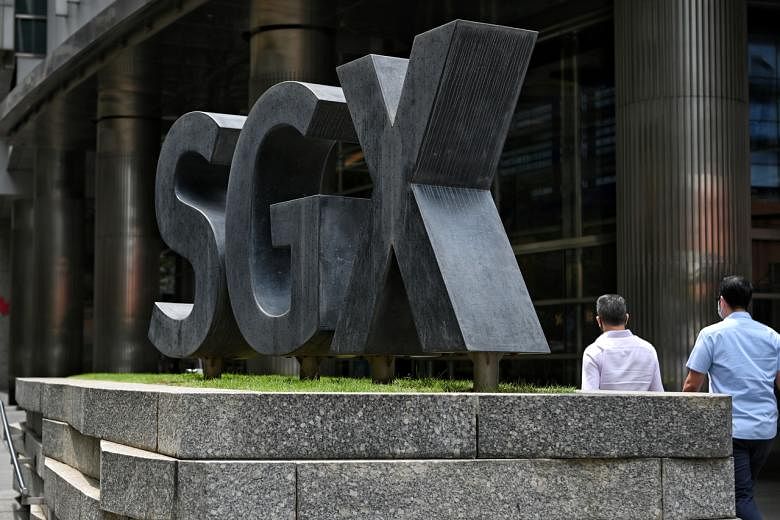SYDNEY (BLOOMBERG) - Singapore stocks fell on Wednesday (Feb 23) morning with the Straits Times Index (STI) down 0.76 per cent to 3,374.7 as at 11.15 am, as Russia-Ukraine tensions unfolded overnight.
US equity futures rose and Asian stocks were mixed as investors assessed the Western sanctions imposed on Russia to gauge geopolitical risks from the standoff over Ukraine.
Shares made modest gains in China and fluctuated in Hong Kong, with Japan closed for a holiday.
The S&P 500 fell into a correction Tuesday after sliding 10 per cent from a January peak. A dollar gauge and gold were steady as haven demand ebbed.
US President Joe Biden said Russia had started to invade Ukraine and announced steps targeting Russia's sale of sovereign debt abroad and the country's elites. Those efforts, as well as European moves, stopped short of the devastating measures that had been threatened.
Mr Biden said the sanctions could be stepped up if Russia "continues its aggression."
Treasuries mostly fell and the yield curve flattened during the Wall Street session amid a rally in commodities that highlighted economic risks from inflation. Australia's three-year bond yield reached a near three-year high.
Fears that the Ukraine standoff could interrupt commodity supplies has bolstered everything from energy to wheat and nickel.
Crude oil was steady as traders also evaluated the potential return of Iranian barrels if the nation reaches a nuclear deal with world powers.
President Vladimir Putin has denied Russia intends to invade Ukraine. But Russia's upper house has given him the green light to deploy troops to separatist-held regions.
The geopolitical risks are putting further pressure on markets, which were already stressed by the prospect of tighter Federal Reserve monetary policy to fight inflation. Expectations of Fed hikes edged up as investors weighed the implications of higher raw material costs in the wake of the Ukraine tension.
The Russia dispute is "potentially aggravating a lingering supply shock," Steven Wieting, chief investment strategist at Citigroup Private Bank, said on Bloomberg Television. "How the Federal Reserve wants to handle that particular issue is really the issue that feeds through to US markets and the broader world."
Mr Biden said the US is also working with Germany to ensure the NordStream 2 pipeline from Russia to Germany won't move forward. Markets appear to see the various sanctions "as modest and perhaps not as aggressive as feared," Chris Weston, head of research with Pepperstone Financial, wrote in a note. He added that perceptions could yet change quickly as events on the ground are fluid.
The latest US data showed Markit manufacturing and services PMI data beat estimates, suggesting recent growth concerns have been driven by the omicron variant. But US consumer confidence is at its lowest since September.
In China, regulators have asked China Huarong Asset Management and its peers to buy property assets from troubled developers and formulate plans for taking over or restructuring smaller lenders, seeking to stabilise the world's second-largest economy.
Elsewhere, New Zealand's central bank raised interest rates for the third straight meeting and signaled it will need to lift them higher than previously expected to contain inflation. The local dollar strengthened.

